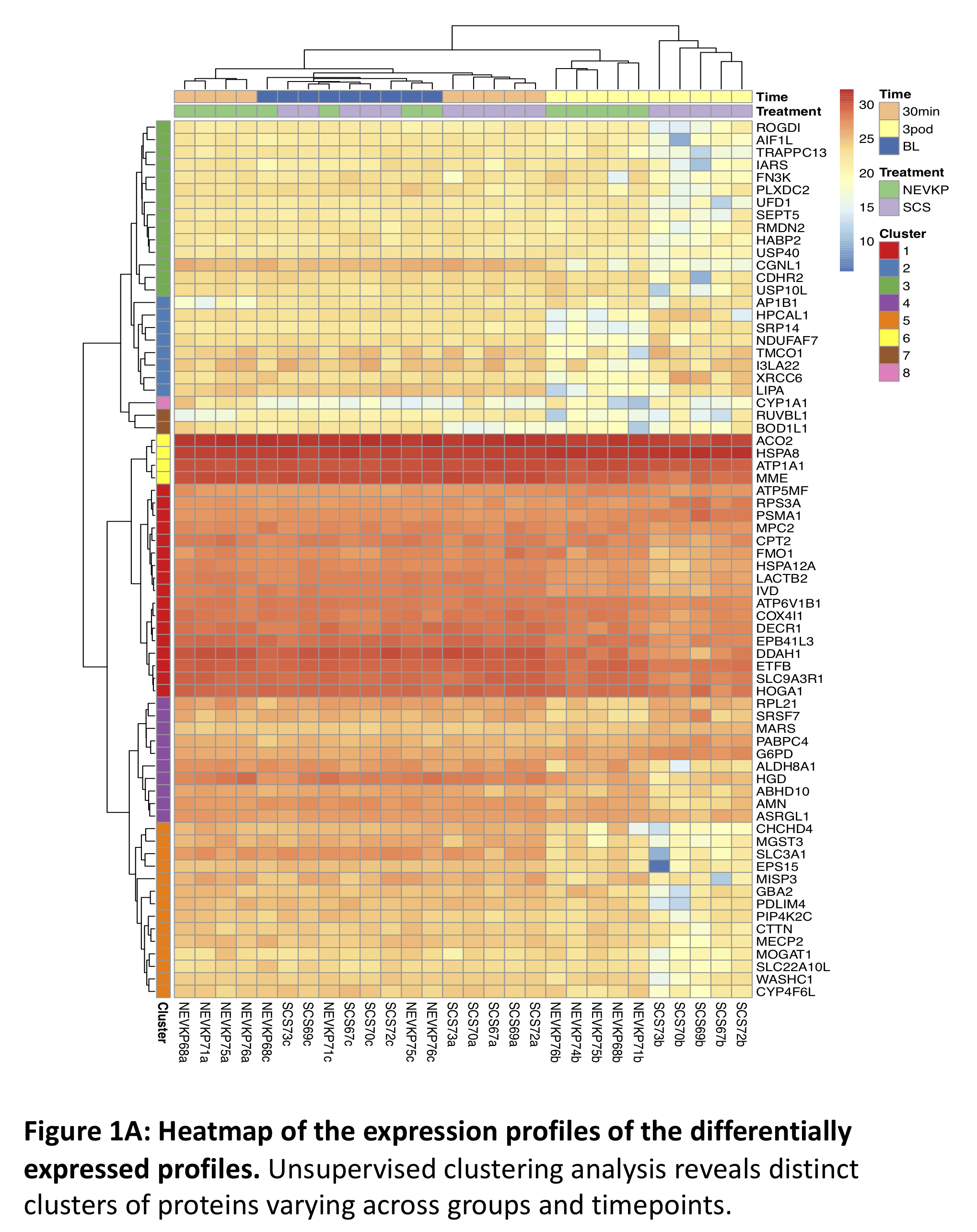Increased Mitochondrial Metabolic Enzymes are Associated with Superior Kidney Function after Normothermic Ex-Vivo Kidney Perfusion-A Proteomics Study
1Toronto General Hospital Research Institute and Multi-Organ Transplant, UHN, Toronto, ON, Canada, 2Krembil Research Institute, UHN, Toronto, ON, Canada, 3Institute of Medical Science, University of Toronto, Toronto, ON, Canada, 4Dept. of Laboratory Medicine and Pathobiology Institute, UHN, Toronto, ON, Canada, 5Schulich School of Medicine & Dentistry, UWO, London, ON, Canada, 6The Hospital for Sick Children Research Institute, Toronto, ON, Canada
Meeting: 2020 American Transplant Congress
Abstract number: 520
Keywords: Donors, non-heart-beating, Graft function, Ischemia, Preservation
Session Information
Session Name: Basic: Ischemia Reperfusion & Organ Rehabilitation III
Session Type: Oral Abstract Session
Date: Saturday, May 30, 2020
Session Time: 3:15pm-4:45pm
 Presentation Time: 3:27pm-3:39pm
Presentation Time: 3:27pm-3:39pm
Location: Virtual
*Purpose: Kidneys donated after circulatory death (DCD) contribute significantly to the donor pool, but have inferior outcomes. Normothermic ex-vivo kidney perfusion (NEVKP) results in significantly improved graft function in porcine auto-transplant models of DCD injury, as compared to static cold storage (SCS); however, the molecular mechanisms responsible remain unclear.
*Methods: We performed an unbiased proteomics analysis of 28 biopsies obtained at three time points from porcine kidneys subjected to 30-minutes of warm ischemia, followed by 8 hours of NEVKP or SCS, and auto-transplantation.
*Results: Of 6593 proteins quantified, 70 were differentially expressed between NEVKP and SCS groups and across time (2-way ANOVA, p.adj.<0.05)(Fig1). Computational analyses revealed that proteins increased in NEVKP mediated key metabolic processes including fatty acid ß- oxidation, the TCA cycle and oxidative phosphorylation, while SCS-increased proteins mediated inflammatory and pro-fibrotic pathways. Comparison of our findings with independent datasets of ischemia-reperfusion injury and other models of kidney injury confirmed that 47 of our proteins represent a common signature of kidney injury reversed or attenuated by NEVKP. We validated key metabolic proteins (ETFB, CPT2) by immunoblotting. Transcription factor databases predicted PPARA, PPARG and RXRA as the upstream regulators of our proteins, and we confirmed their increased expression in NEVKP kidneys by RT-PCR . Urinary excretion of lactate, indoxyl sulfate, p-cresyl glucuronide and hippuric acid were significantly increased post-SCS, while choline excretion was significantly increased post-NEVKP, suggesting PPARA activation in NEVKP.
*Conclusions: The proteome-level changes associated with NEVKP mediate critical metabolic pathways that may explain improved graft function with NEVKP compared to SCS, and may represent novel therapeutic targets in ischemia-reperfusion injury.
To cite this abstract in AMA style:
McEvoy C, Clotet-Freixas S, Tokar T, Pastrello C, Reid S, Batruch I, RaoPeters A, Urbanellis P, Kaths M, Farkona S, Van J, Urquhart B, Jurisica I, Robinson L, Selzner M, Konvalinka A. Increased Mitochondrial Metabolic Enzymes are Associated with Superior Kidney Function after Normothermic Ex-Vivo Kidney Perfusion-A Proteomics Study [abstract]. Am J Transplant. 2020; 20 (suppl 3). https://atcmeetingabstracts.com/abstract/increased-mitochondrial-metabolic-enzymes-are-associated-with-superior-kidney-function-after-normothermic-ex-vivo-kidney-perfusion-a-proteomics-study/. Accessed February 27, 2026.« Back to 2020 American Transplant Congress

